Are You a Stress Eater? Unmasking the Comfort Food Connection
Life is stressful. From demanding jobs to overflowing to-do lists and navigating complex relationships, it’s no wonder we often feel overwhelmed. And for many, that stress manifests in a familiar and comforting way: reaching for food. Sound familiar? You might be a stress eater.
Stress eating, also known as emotional eating, isn’t about satisfying hunger. It’s about using food to cope with negative emotions, whether it’s anxiety, sadness, anger, or just plain boredom. While indulging in a treat now and then is perfectly normal, consistently turning to food as a primary coping mechanism can have negative consequences for your physical and mental health.
Spotting the Signs: Are You Eating Your Feelings?
So, how do you know if you’re a stress eater? Here are some common signs to watch out for:
- Eating when you’re not hungry: Do you find yourself snacking even though you haven’t felt any physical hunger pangs?
- Craving specific comfort foods: Do you reach for sugary, salty, or fatty foods when you’re feeling stressed? These foods often trigger the release of dopamine, a neurotransmitter associated with pleasure, providing a temporary sense of relief.
- Eating in secret or feeling guilty afterward: Do you hide your eating habits from others or feel ashamed after indulging?
- Eating in response to emotions: Does a bad day at work, a fight with your partner, or feeling overwhelmed trigger a craving for food?
- Losing control over your eating: Do you find yourself eating more than you intended, even when you know you should stop?
- Using food as a distraction: Do you eat to avoid dealing with uncomfortable emotions or responsibilities?
If you answered “yes” to several of these questions, you’re likely using food to cope with stress.
Why We Turn to Food: Understanding the Root of the Problem
Stress eating is a complex behavior influenced by a combination of factors:
- Hormonal Changes: When stressed, the body releases cortisol, the stress hormone. Cortisol can increase cravings for sugary and fatty foods.
- Emotional Associations: Many of us associate food with positive memories and feelings, such as childhood treats or celebratory meals. This can lead to using food as a way to recapture those comforting emotions.
- Habit and Conditioning: Over time, using food as a coping mechanism can become an ingrained habit, making it difficult to break the cycle.
- Lack of Alternative Coping Strategies: If you don’t have other healthy ways to manage stress, food can become your go-to solution.
Breaking the Cycle: How to Stop Stress Eating
The good news is that you can break free from the cycle of stress eating. Here are some strategies to help you manage your emotions in healthier ways:
- Identify Your Triggers: Pay attention to the situations, emotions, and thoughts that trigger your stress eating. Keep a food journal to track your eating habits and identify patterns.
- Develop Alternative Coping Mechanisms: Find healthy ways to manage stress, such as exercise, meditation, yoga, spending time in nature, listening to music, deep breathing exercises, or engaging in a hobby.
- Practice Mindful Eating: Pay attention to your hunger and fullness cues. Eat slowly and savor each bite. Avoid distractions while eating, such as watching TV or scrolling through your phone.
- Challenge Negative Thoughts: When you have the urge to stress eat, identify and challenge the negative thoughts that are driving your behavior. Replace them with more positive and realistic thoughts.
- Find Support: Talk to a therapist, counselor, or registered dietitian. They can help you identify the underlying causes of your stress eating and develop a personalized plan for managing your emotions and eating habits.
- Plan Ahead: Stock your pantry and refrigerator with healthy and nutritious foods. This will make it easier to make healthy choices when you’re feeling stressed.
- Be Patient and Kind to Yourself: Breaking the cycle of stress eating takes time and effort. Don’t get discouraged if you slip up occasionally. Just learn from your mistakes and keep moving forward.
Taking the First Step
Recognizing that you’re a stress eater is the first step towards taking control of your eating habits and improving your overall well-being. By understanding the root causes of your stress eating and developing healthy coping mechanisms, you can break free from the comfort food connection and build a healthier, happier you. Don’t hesitate to seek professional help if you’re struggling to manage your stress eating on your own. Remember, you’re not alone, and change is possible.
Are You a Stress Eater? Unmasking the Comfort Food Connection
Life is stressful. From demanding jobs to overflowing to-do lists and navigating complex relationships, it’s no wonder we often feel overwhelmed. And for many, that stress manifests in a familiar and comforting way: reaching for food. Sound familiar? You might be a stress eater.
Stress eating, also known as emotional eating, isn’t about satisfying hunger. It’s about using food to cope with negative emotions, whether it’s anxiety, sadness, anger, or just plain boredom. While indulging in a treat now and then is perfectly normal, consistently turning to food as a primary coping mechanism can have negative consequences for your physical and mental health.
Spotting the Signs: Are You Eating Your Feelings?
So, how do you know if you’re a stress eater? Here are some common signs to watch out for:
- Eating when you’re not hungry: Do you find yourself snacking even though you haven’t felt any physical hunger pangs?
- Craving specific comfort foods: Do you reach for sugary, salty, or fatty foods when you’re feeling stressed? These foods often trigger the release of dopamine, a neurotransmitter associated with pleasure, providing a temporary sense of relief.
- Eating in secret or feeling guilty afterward: Do you hide your eating habits from others or feel ashamed after indulging?
- Eating in response to emotions: Does a bad day at work, a fight with your partner, or feeling overwhelmed trigger a craving for food?
- Losing control over your eating: Do you find yourself eating more than you intended, even when you know you should stop?
- Using food as a distraction: Do you eat to avoid dealing with uncomfortable emotions or responsibilities?
If you answered “yes” to several of these questions, you’re likely using food to cope with stress.
Why We Turn to Food: Understanding the Root of the Problem
Stress eating is a complex behavior influenced by a combination of factors:
- Hormonal Changes: When stressed, the body releases cortisol, the stress hormone. Cortisol can increase cravings for sugary and fatty foods.
- Emotional Associations: Many of us associate food with positive memories and feelings, such as childhood treats or celebratory meals. This can lead to using food as a way to recapture those comforting emotions.
- Habit and Conditioning: Over time, using food as a coping mechanism can become an ingrained habit, making it difficult to break the cycle.
- Lack of Alternative Coping Strategies: If you don’t have other healthy ways to manage stress, food can become your go-to solution.
Breaking the Cycle: How to Stop Stress Eating
The good news is that you can break free from the cycle of stress eating. Here are some strategies to help you manage your emotions in healthier ways:
- Identify Your Triggers: Pay attention to the situations, emotions, and thoughts that trigger your stress eating. Keep a food journal to track your eating habits and identify patterns.
- Develop Alternative Coping Mechanisms: Find healthy ways to manage stress, such as exercise, meditation, yoga, spending time in nature, listening to music, deep breathing exercises, or engaging in a hobby.
- Practice Mindful Eating: Pay attention to your hunger and fullness cues. Eat slowly and savor each bite. Avoid distractions while eating, such as watching TV or scrolling through your phone.
- Challenge Negative Thoughts: When you have the urge to stress eat, identify and challenge the negative thoughts that are driving your behavior. Replace them with more positive and realistic thoughts.
- Find Support: Talk to a therapist, counselor, or registered dietitian. They can help you identify the underlying causes of your stress eating and develop a personalized plan for managing your emotions and eating habits.
- Plan Ahead: Stock your pantry and refrigerator with healthy and nutritious foods. This will make it easier to make healthy choices when you’re feeling stressed.
- Be Patient and Kind to Yourself: Breaking the cycle of stress eating takes time and effort. Don’t get discouraged if you slip up occasionally. Just learn from your mistakes and keep moving forward.
Taking the First Step
Recognizing that you’re a stress eater is the first step towards taking control of your eating habits and improving your overall well-being. By understanding the root causes of your stress eating and developing healthy coping mechanisms, you can break free from the comfort food connection and build a healthier, happier you. Don’t hesitate to seek professional help if you’re struggling to manage your stress eating on your own. Remember, you’re not alone, and change is possible.



